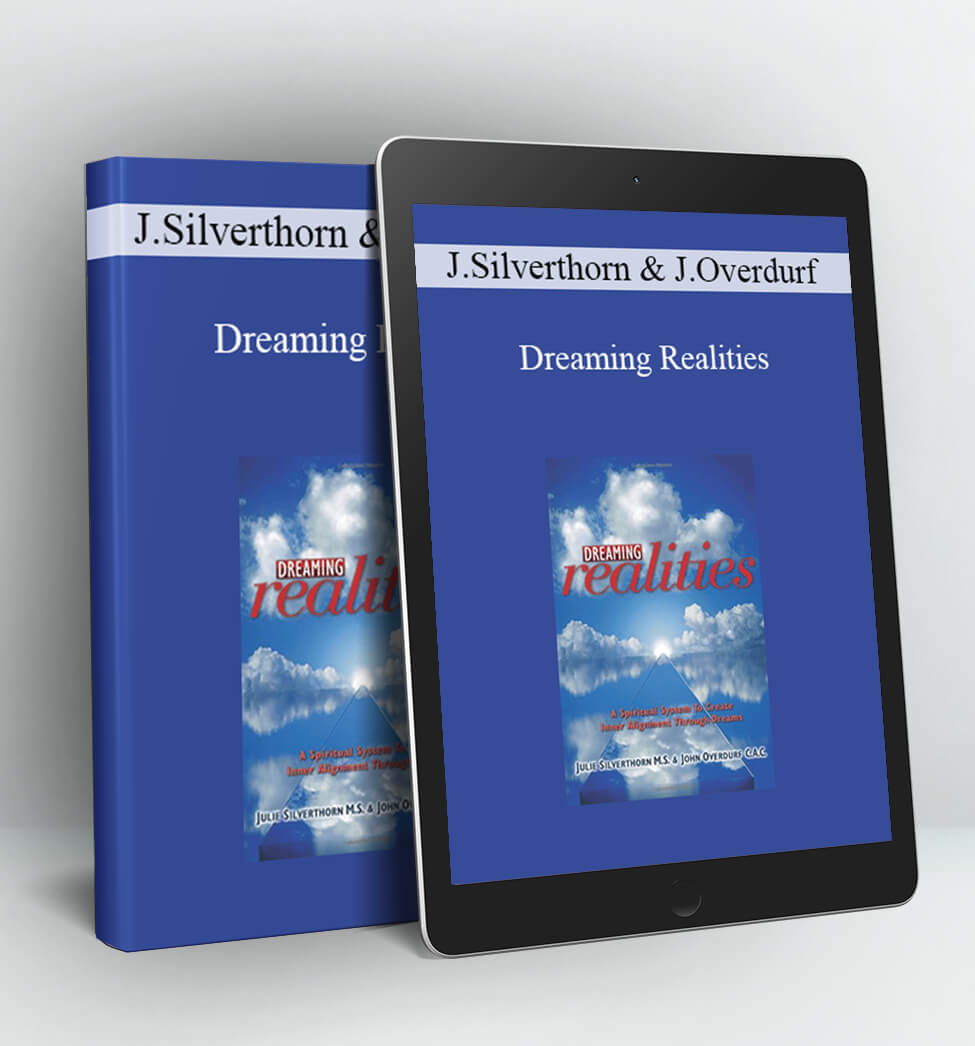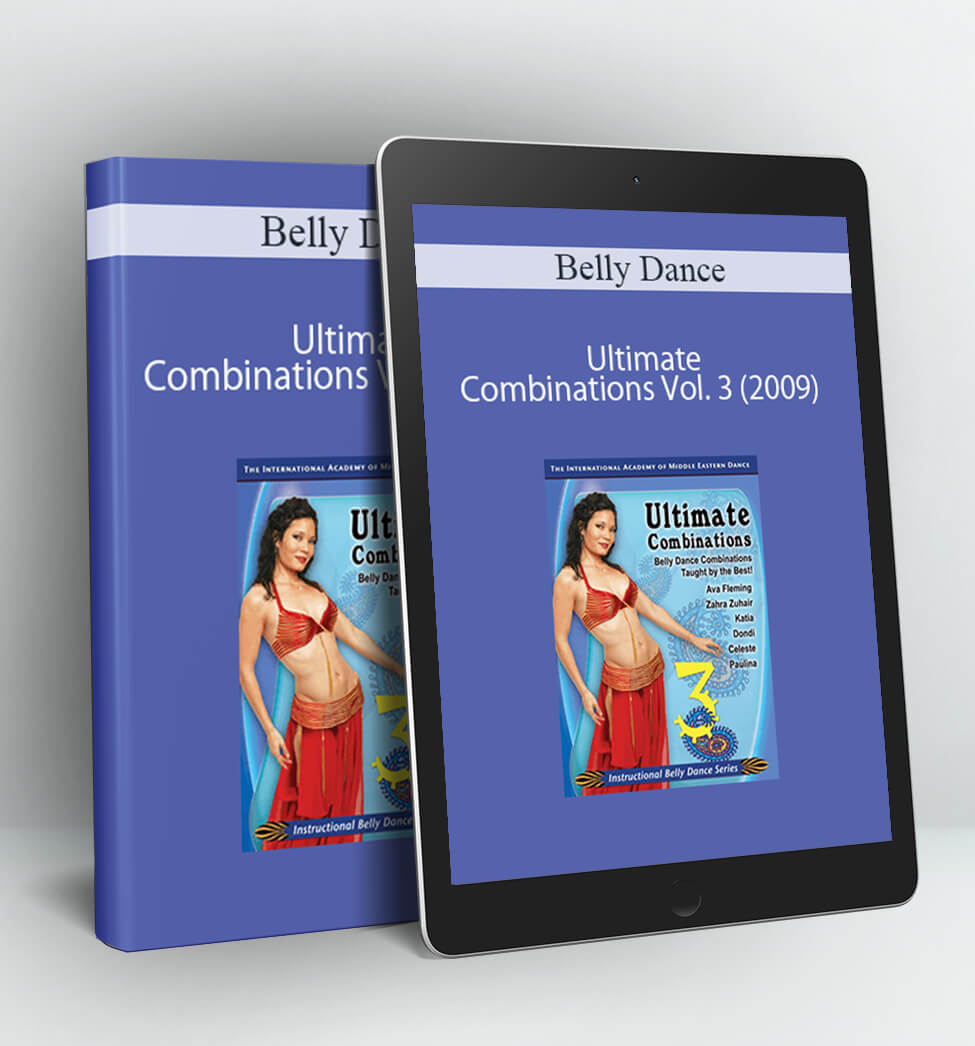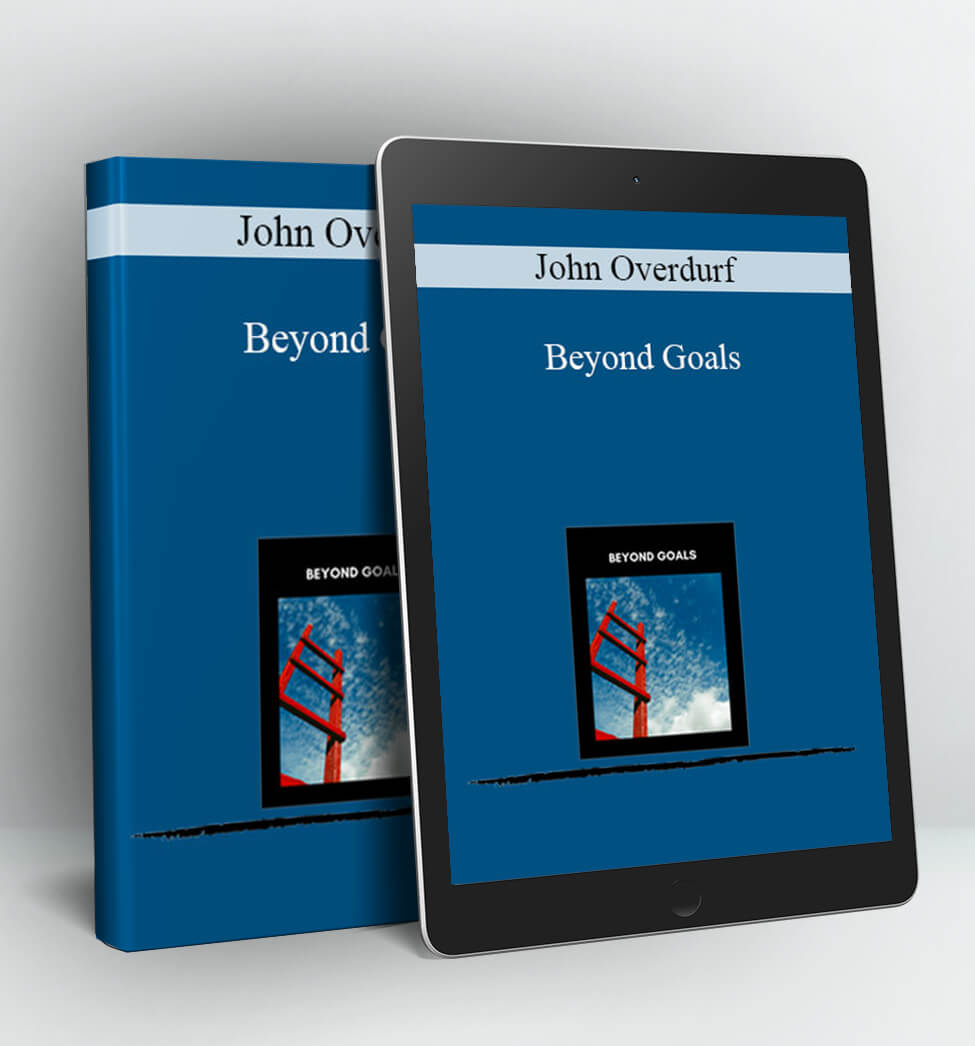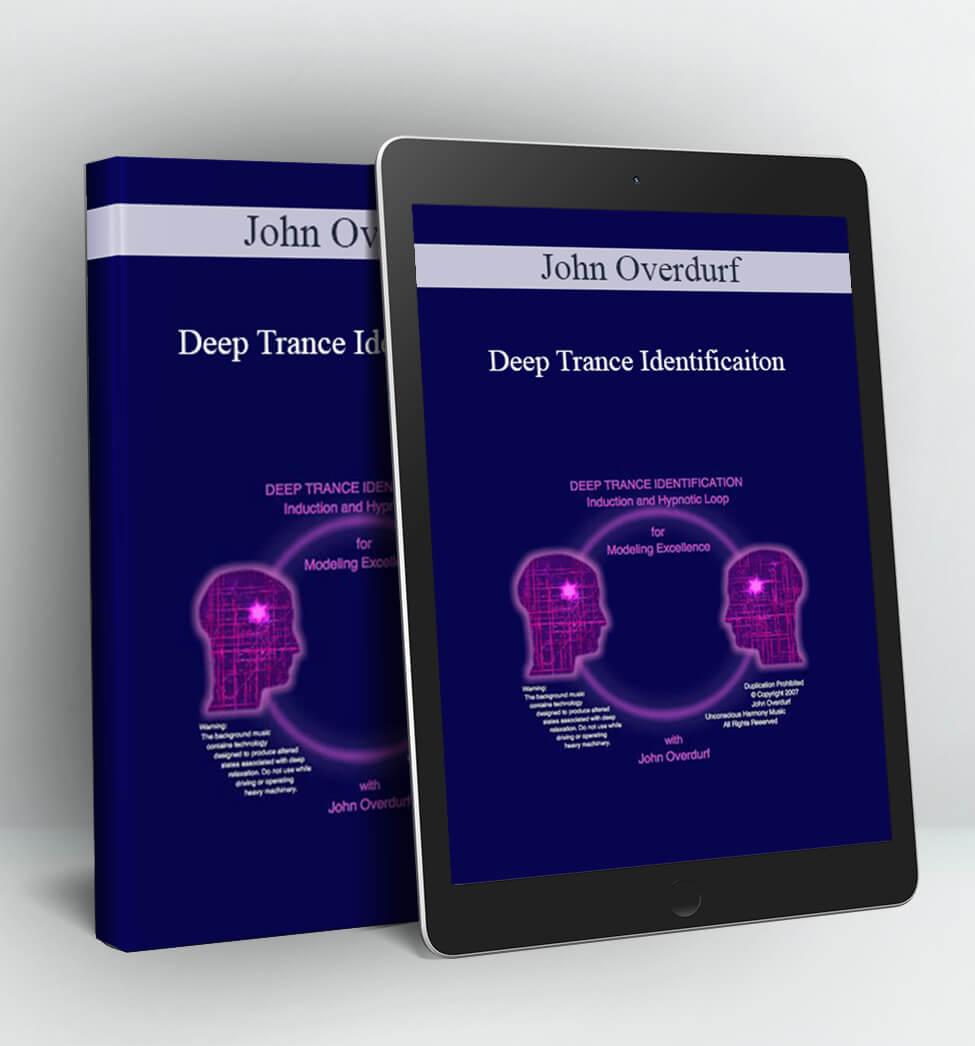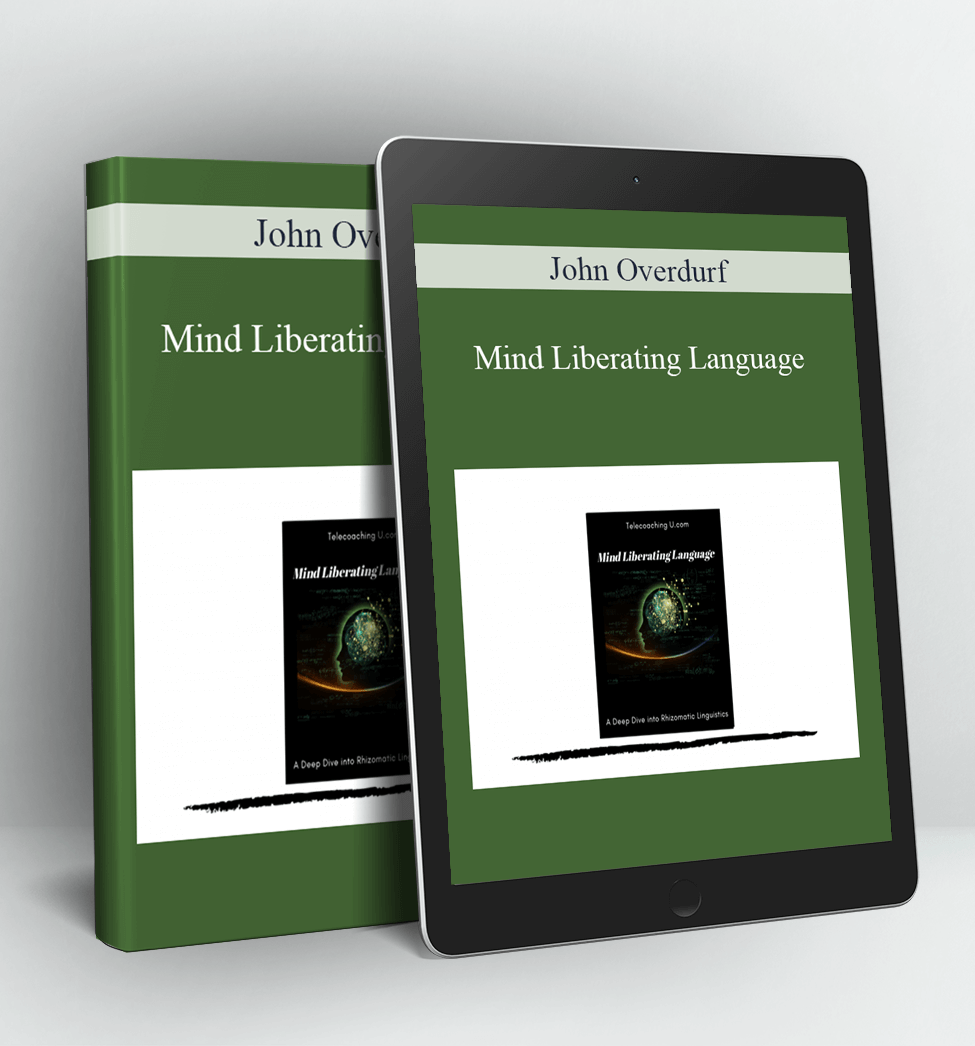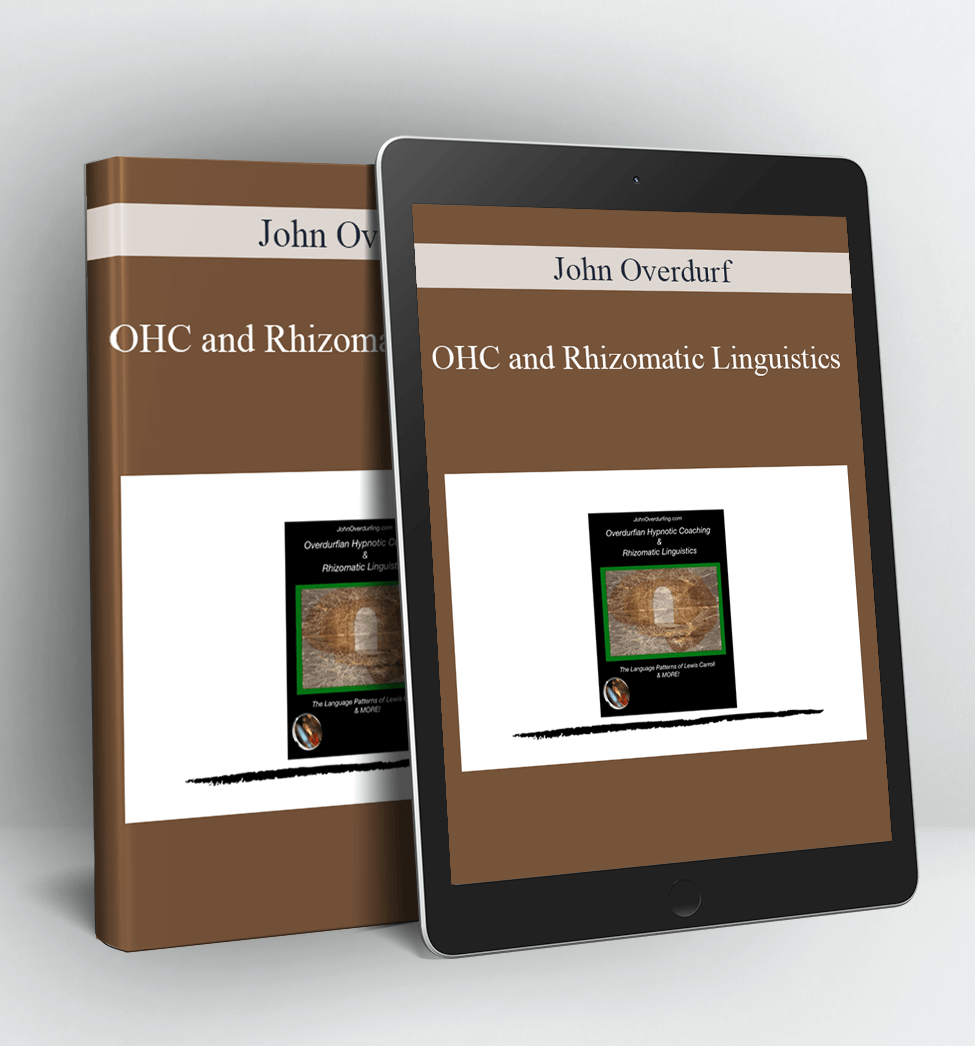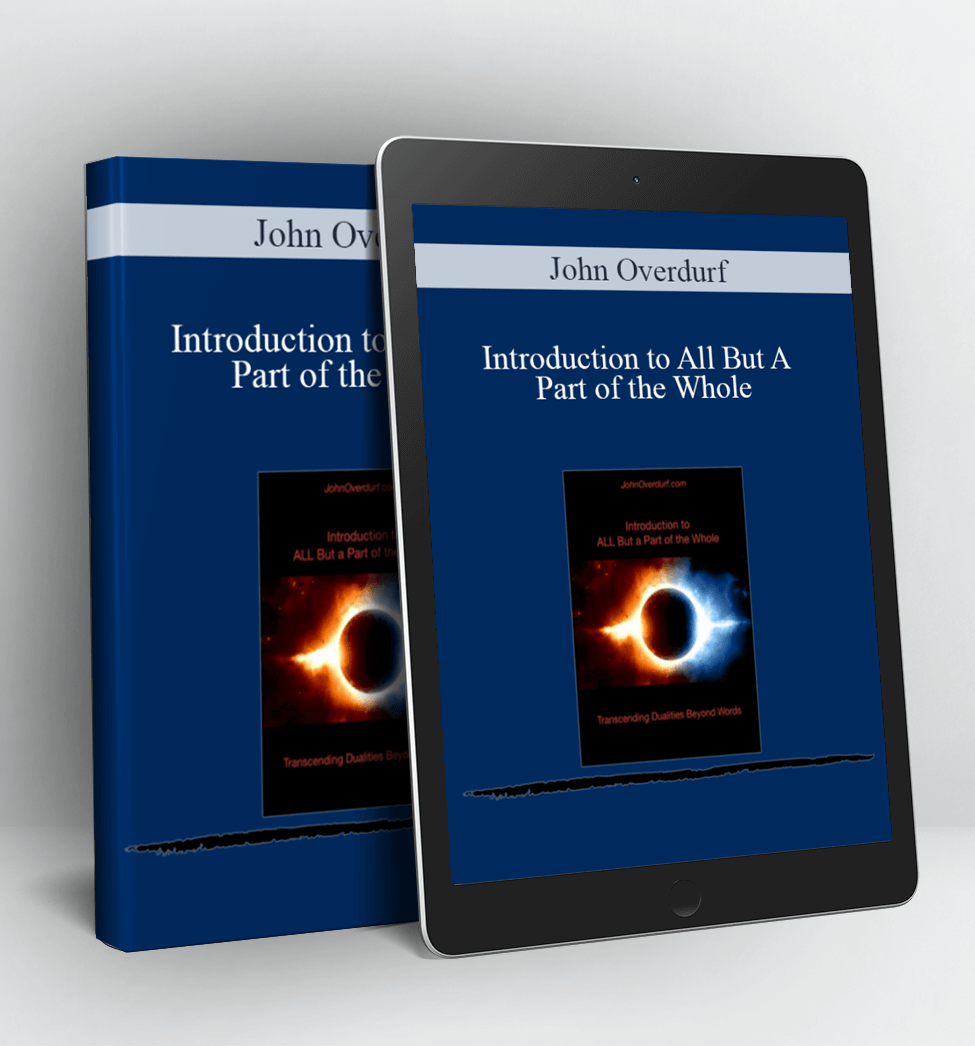Dreaming Realities – Julie Silverthorn, John Overdurf
This refreshing approach to the act of dreaming allows you to explore your full potential through the very control of your dreams. It teaches the reader how to construct dreams that will improve reality, and demonstrates how such dreams directly affect our lives.
Presented is the most up-to-date information about dreaming, plus a number of essential techniques for harnessing the resources of dreams. This is a book that will appeal to all those interested in the power of dreams. It provides an alternative path for those interested in seeking inner peace, making it a new and intriguing programme of personal development.
About the Author
Julie Silverthorn MS and John Overdurf CAC are highly respected international therapists and trainers of hypnotherapy and NLP, with over thirty years of combined experience. They are both certified Master Trainers of NLP, and are the developers of Humanistic Neuro-Linguistic Psychology, which integrates hypnosis, neuro-linguistics, quantam theory and spirituality. Julie has a Master’s degree in clinical psychology; John is a certified addictions counsellor and a former instructor of psychology. –Este texto se refiere a la edición .
Excerpt. © Reprinted by permission. All rights reserved.
Welcome to Dreaming Realities. Before you continue, here are a few tips we would like to offer you to make your reading more enjoyable and your time more productive. You might notice, in perusing this book, that it is divided into seven chapters and seven Dreamtime Interludes. Together they form an integrated dream system whose purpose is to align your conscious, unconscious, and higher conscious minds. The first three chapters explore the three minds, the physiology of sleep, and the quantum physics of dreaming. They integrate the most important and up-to-date information that we have found about dreams and related states. These chapters form the content basis of the dreaming practices covered in the last four chapters. At the end of each of the chapters we include a conscious review and an unconscious review. The conscious reviews succinctly cover the high points and the important facts that are germane to the dreaming practices taught in the later chapters. The unconscious reviews, on the other hand, are written to stimulate more general associations and to connect the themes at the unconscious level. Also, they are designed to offer suggestions that can incubate between reading the chapters and other readings. They contain hypnotic language useful in formatting the unconscious mind for exercises in the later chapters and the Dreamtime Interludes. You may find it useful to read these reviews repeatedly as you continue with the later chapters. The middle and later chapters cover dream incubation, interpretation, lucidity, and advanced spiritual practices using sleep and dreams. These chapters are less content-oriented and are more “how to.” Generally, it is preferable that you carry out the processes in the order presented, because they are progressive. The end of the book includes seven Dreamtime Interludes. Each interlude is a process, or series of processes, that can greatly enhance the techniques found in the first seven chapters. The first Interlude is a reality-testing procedure that will sharpen your conscious abilities a crucial step to dreaming lucidly. This process has been researched by a number of prominent lucid dreaming researchers and we can reassure you that it works. We have modified these steps to make reality-testing more effective. The second, third, and fourth interludes will assist you in getting to know your unconscious mind. Two of these interludes will teach you how to use a pendulum to conduct an unconscious review of abilities, memories, beliefs, behaviors, and other resources which can be activated to accelerate your progress. The latter interlude is an unconscious clearing and healing technique that can be used for issues, blocks, or challenges that may arise along the path. It can also be used in conjunction with interpretation to resolve issues that may emerge. The fifth interlude is a meditation to access your higher conscious mind. We developed the meditation from the work of Roberto Assagioli, the originator of Psychosynthesis, one of the first credible treatment modalities recognizing the higher conscious mind. The sixth interlude is what we call the Dreaming Meditation technique. It is a technique we developed after studying and identifying commonalities in numerous dream yoga and meditation systems. For best results, begin using this meditation before Chapter 4 on incubation. As you will learn while reading the book, reality-testing and Dreaming Meditation complement each other. They define and then unite the waking state with the dreaming state. Together they form the foundation for the practice of lucid dreaming.
The final interlude is Moe Uhane, the Hawaiian Dreamtime chant which was translated from Hawaiian by our friends, Tad and Ardie James. –Este texto se refiere a la edición
Access Download Dreaming Realities – Julie Silverthorn, John Overdurf right now!
Delivery Method:
After your purchase, you’ll get access to the downloads page. Here, you can download all the files associated with your order.
Downloads are available once your payment is confirmed, we’ll also send you a download notification email separate from any transaction notification emails you receive from Vinlearn.

